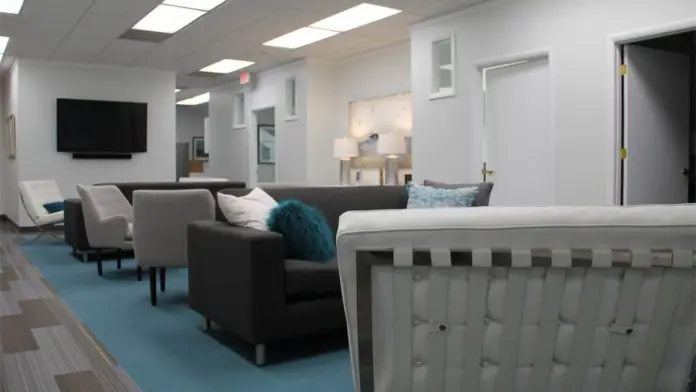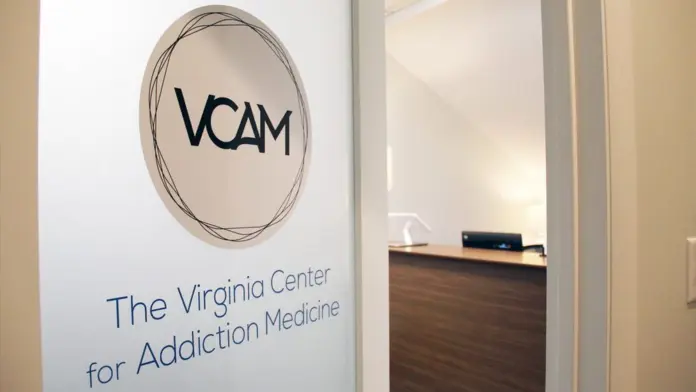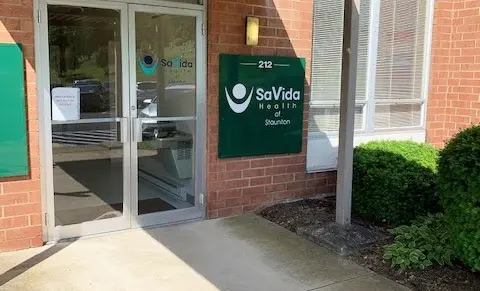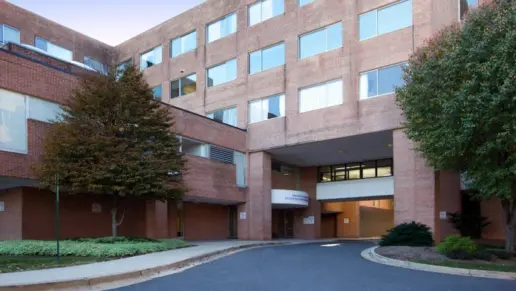Absolutely horrible! Staff is rude, coaches are NOT real recovering addicts, they DO NOT care about the patients well being! Karen needs to be FIRED! She’s the rudest one of them all! Marci put my unborn child at risk for fetal distress but claims she use to work at an OB ...
About The Virginia Center for Addiction Medicine
The Virginia Center for Addiction Medicine, in Richmond, Virginia, is an outpatient drug and alcohol rehab for adults. They provide intervention services, medically supervised detox, medication assisted treatment (MAT), and dedicated programs for young adults and persons with co-occurring addiction and mental illness. Their primary treatment modalities include CBT based individual, group, and family counseling.
The Virginia Center for Addiction Medicine is an outpatient addiction recovery center for adults in Richmond, Virginia specializing in dual diagnosis care, medically supervised detox, medication assisted treatment (MAT), intervention services, programming for young adults, and aftercare planning and support.
Clients undergoing detox or receiving outpatient treatment may receive FDA approved medications to ease withdrawal symptoms, prevent potentially serious complications, and promote sustained abstinence. Medication induction and maintenance services are included.
The outpatient program is designed to provide a robust continuum of care aligned with clients’ evolving needs. Clients engage in intensive CBT based individual, group, and family therapy, with or without MAT. They also receive extensive recovery focused life skills training to support long term recovery. Ancillary services include nicotine replacement programs. Aftercare planning and support services are designed to facilitate clients’ successful reintegration into their homes, workplaces, and communities and may include medical, mental health, and social service referrals.
The Virginia Center for Addiction Medicine accepts private insurance and self pay.
Latest Reviews
Rehab Score
Gallery


Location
Other Forms of Payment
Self-pay involves paying for treatment out of your own pocket. You can use savings or credit, get a personal loan, or receive help from family and friends to fund your treatment. If you don't have insurance or your insurance plan doesn't cover a specific program, self-pay can help ensure you still get the care you need.
Private insurance refers to any kind of healthcare coverage that isn't from the state or federal government. This includes individual and family plans offered by an employer or purchased from the Insurance Marketplace. Every plan will have different requirements and out of pocket costs so be sure to get the full details before you start treatment.
Addiction Treatments
Levels of Care
Treatments
The goal of treatment for alcoholism is abstinence. Those with poor social support, poor motivation, or psychiatric disorders tend to relapse within a few years of treatment. For these people, success is measured by longer periods of abstinence, reduced use of alcohol, better health, and improved social functioning. Recovery and Maintenance are usually based on 12 step programs and AA meetings.
When you enroll in drug rehab in Virginia, a treatment plan is designed by professional staff in order to help you overcome drug addiction and modify addictive behaviors. This may include evidence-based treatments, group and individual therapy, and relapse prevention.
A combined mental health and substance abuse rehab has the staff and resources available to handle individuals with both mental health and substance abuse issues. It can be challenging to determine where a specific symptom stems from (a mental health issue or an issue related to substance abuse), so mental health and substance abuse professionals are helpful in detangling symptoms and keeping treatment on track.
Opioid rehabs specialize in supporting those recovering from opioid addiction. They treat those suffering from addiction to illegal opioids like heroin, as well as prescription drugs like oxycodone. These centers typically combine both physical as well as mental and emotional support to help stop addiction. Physical support often includes medical detox and subsequent medical support (including medication), and mental support includes in-depth therapy to address the underlying causes of addiction.
Programs


Clinical Services
Cognitive Behavioral Therapy (CBT) is a therapy modality that focuses on the relationship between one's thoughts, feelings, and behaviors. It is used to establish and allow for healthy responses to thoughts and feelings (instead of unhealthy responses, like using drugs or alcohol). CBT has been proven effective for recovering addicts of all kinds, and is used to strengthen a patient's own self-awareness and ability to self-regulate. CBT allows individuals to monitor their own emotional state, become more adept at communicating with others, and manage stress without needing to engage in substance abuse.
Whether a marriage or other committed relationship, an intimate partnership is one of the most important aspects of a person's life. Drug and alcohol addiction affects both members of a couple in deep and meaningful ways, as does rehab and recovery. Couples therapy and other couples-focused treatment programs are significant parts of exploring triggers of addiction, as well as learning how to build healthy patterns to support ongoing sobriety.
Research clearly demonstrates that recovery is far more successful and sustainable when loved ones like family members participate in rehab and substance abuse treatment. Genetic factors may be at play when it comes to drug and alcohol addiction, as well as mental health issues. Family dynamics often play a critical role in addiction triggers, and if properly educated, family members can be a strong source of support when it comes to rehabilitation.
Group therapy is any therapeutic work that happens in a group (not one-on-one). There are a number of different group therapy modalities, including support groups, experiential therapy, psycho-education, and more. Group therapy involves treatment as well as processing interaction between group members.
In individual therapy, a patient meets one-on-one with a trained psychologist or counselor. Therapy is a pivotal part of effective substance abuse treatment, as it often covers root causes of addiction, including challenges faced by the patient in their social, family, and work/school life.
Nicotine Replacement Therapy (NRT) is a way of getting nicotine into the bloodstream without smoking. It uses products that supply low doses of nicotine to help people stop smoking. The goal of therapy is to cut down on cravings for nicotine and ease the symptoms of nicotine withdrawal.
Amenities
-
Private Setting
Contact Information
2301 N. Parham Road
Suite 4
Richmond, VA 23229


